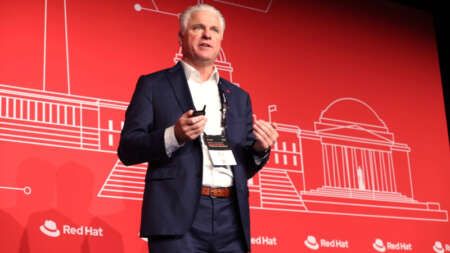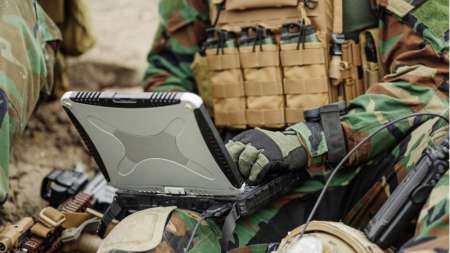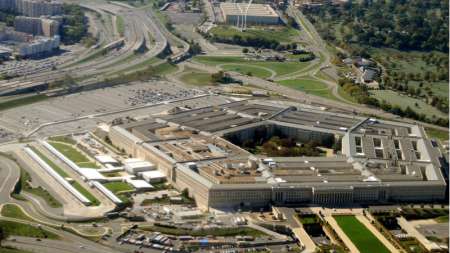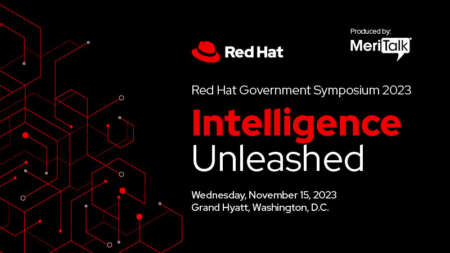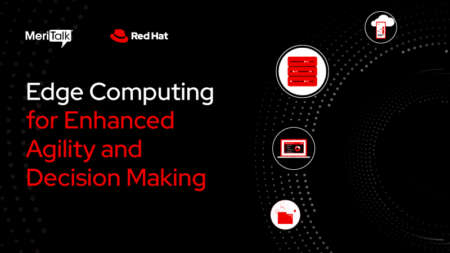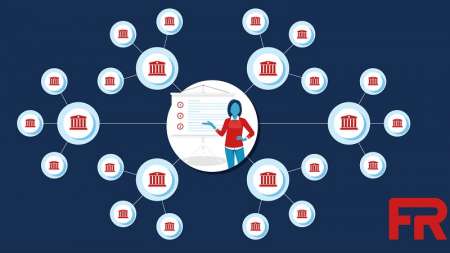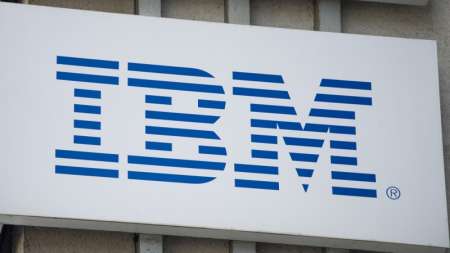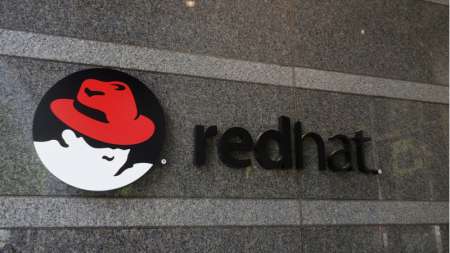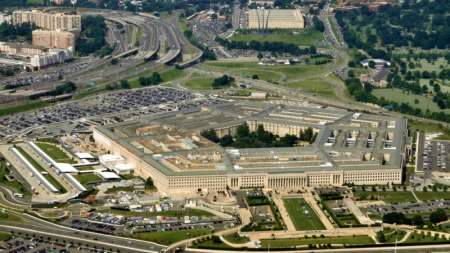As agencies race to put generative artificial intelligence (AI) into production, many are confronting the same challenge: The bigger and more “all-in-one” the model gets, the harder it becomes to predict outcomes, explain decisions, and demonstrate accountability. […]
The push to modernize government IT is colliding with a hard reality: The most important data isn’t always generated where networks are strong, cloud connectivity is reliable, or power and cooling are abundant. […]
Municipal governments are under continued pressure to save money while delivering more and better services, noted John Dvorak, chief technology officer for public sector at Red Hat, during the recent Red Hat Government Symposium. […]
As missile threats evolve and the Arctic grows more accessible, defense leaders are rethinking what it takes to protect the homeland in the High North. Speaking on a recent Red Hat Government Symposium panel, “Missile Defense in the Digital Age,” experts underscored that the next generation of missile defense will depend on artificial intelligence (AI)-ready data, resilient networks, and close cooperation among allies. […]
As the Department of Homeland Security (DHS) and the Department of Justice (DOJ) modernize software to meet increasingly complex missions, a collaborative development model – powered by open-source technologies and agile methodologies – speeds the development process. In a recent interview with MeriTalk, Michael Hardee, chief architect for law enforcement and justice at Red Hat, discusses how a container-first and cloud-first approach can help. […]
By John Dvorak, chief technology officer, public sector, Red Hat Using AI safely and effectively is an open-ended challenge and government agencies can easily get overwhelmed with trying to develop AI strategies, hire or contract teams of data scientists, onboard chief AI officers and so on. But starting to build an AI strategy doesn’t have […]
Senior technology officials at Red Hat said today that Federal government organizations face highly consequential decisions over the next year on how they choose to deploy artificial intelligence (AI) technologies and emphasized that much of the AI innovation is taking place via open source software in which the company specializes. […]
Panasonic Connect North America recently announced a new collaboration with Red Hat to certify its TOUGHBOOK laptops and tablets on Red Hat Enterprise Linux. […]
As the U.S. government advances to a war-fighting posture that increasingly integrates emerging technologies, the Department of Defense (DoD) is modernizing computing infrastructure to support new capabilities. At the same time, virtualized, mission-critical applications must run uninterrupted. In a recent interview, Travis Steele, chief architect at Red Hat, discussed best practices for virtualization today, how virtualization and containers can coexist, and how a common platform for both creates a pathway to modernization. […]
As artificial intelligence (AI) and machine learning (ML) technologies are accelerating decision-making and data analysis at the mission edge, military tech experts on Wednesday stressed the importance of training individuals in AI and ML in order to outpace adversaries. […]
The story of how the Federal government is grappling with artificial intelligence (AI) technologies – and adopting policies that will define their use for years to come – is being written right now. Come join us on Nov. 15 in Washington, D.C., to become part of that vital process at the Red Hat Government Symposium 2023: Intelligence Unleashed. […]
Automation is a vital piece of the digital transformation that is sweeping across Federal agencies. It improves workflows and speeds processes, ultimately improving the quality of citizen services. MeriTalk recently sat down with Adam Clater, chief architect for North America Public Sector at Red Hat, to discuss the power of automation to transform citizen services, how agencies can plan for automation across the enterprise, and the importance of automating on a secure, stable foundation. […]
Federal agencies are increasingly adopting edge computing, citing its transformative power to enable field agents and military personnel to make faster decisions and respond to crisis situations, experts said. […]
Federal and private sector experts will break down the future of data management at the Defense Department (DoD) as the Pentagon builds on its Joint All-Domain Command and Control (JADC2) strategy, during a Dec. 15 webinar from MeriTalk and Red Hat. […]
You can’t get much further afield than the International Space Station, where Red Hat helped to build systems that process data science locally rather than sending it back to Earth. This capability will become more important, notes John Dvorak, Red Hat’s chief architect for North American public sector, in a MeriTV interview. […]
stackArmor announced today that the company is working with Red Hat to accelerate the FedRAMP Authority to Operate (ATO) project for Red Hat OpenShift Service on AWS (ROSA). […]
Federal IT professionals often feel stuck between a rock and a hard place. Their “customers” – which include every U.S. citizen as well as legions of internal stakeholders – want them to deliver modern services faster, more securely, and more cost-effectively at a time when workloads and expectations have never been greater. Couple this with record employee transitions and steep competition for talent, and IT professionals face a Herculean mission. […]
Federal IT leaders estimate that agencies have advanced modernization efforts by four to five years in recent months, and all hope to continue the momentum. They say improved data sharing between new and legacy systems is the No. 1 opportunity to move modernization forward. […]
MeriTalk connected with Kevin Griffith, Senior Director of DoD Operations at Red Hat to discuss how the Department of Defense (DoD) can drive mission-based value and improve operations with modern application development and delivery methodologies. […]
Officials with several leading Federal IT service providers applauded government agency grades on last week’s FITARA Scorecard, but also suggested a range of grading category adjustments for the scorecard to better track where agency performance should be going in the future. […]
Chezian Sivagnanam, chief enterprise architect at the National Science Foundation (NSF), stressed the importance of moving the Federal government to cloud-native applications, during a presentation Feb. 12 at an event organized by GovLoop and Red Hat. […]
IBM announced on July 9 that it completed its agreement to buy Red Hat, an open-source software provider, for $34 billion. […]
IBM announced on Sunday it agreed to buy software maker Red Hat for $34 billion. The deal requires approves from shareholders and Federal regulators, and is expected to close in the second half of next year. […]
The Department of Defense’s (DoD) move to the cloud is fueled by the agency’s desire to improve interoperability and adopt emerging technologies, according to officials speaking during yesterday’s MeriTalk webinar. On the webinar, which was underwritten by AWS and Red Hat, Stephen Moon, senior solutions architect, DoD at Amazon Web Services, and Ted Brunell, chief architect, DoD at Red Hat discussed why cloud is mission-critical and how DoD sees it shaping the future. […]
An overwhelming majority–86 percent–of 150 Defense Department (DoD) IT managers surveyed by MeriTalk said that failing to modernize legacy DoD systems is putting U.S. national security in jeopardy, and a similar number (83 percent) are concerned about the potential of the U.S. falling behind adversaries like China and Russia in newer-technology arenas including cyberspace, artificial intelligence, and electronic warfare. […]
Federal IT comes with some baggage–much of its data is trapped in legacy technologies. Agencies can’t realistically pick everything up and move to more modern infrastructure. So how do they bridge the gap? MeriTalk’s latest report found that improving data sharing between new and legacy systems is the number one solution to accelerating Federal IT modernization. The “Modernizing the Monolith” study explores why legacy systems are so persistent and outlines a path to modernizing with them, instead of in spite of them. […]
Until now, most Federal agencies built their computing architectures like the aging buildings that house most of their headquarters, as huge monolithic structures that are inefficient, require frequent maintenance, and are wholly inflexible. Now, companies like Red Hat are offering a new path using microservices technology, which takes huge application stacks and breaks them down into tiny, modular components that can expand or contract based on needs, eliminating waste while ensuring critical services are always available regardless of future usage spikes. […]
David Egts, chief technologist for Red Hat public sector has some words of wisdom for Federal managers seeking ways to move from legacy applications to more agile environments: modernization is not just about adopting new technologies and practices, it is about what happens to the old ones. […]
We see lots of moves to IT modernization in motion–but how does it all come together? The White House wants to tie those into a broader program, creating a new ecosystem to fuel government-wide modernization efforts. […]
The Modernizing Government Technology Act (MGT) and other related initiatives are pushing agencies to move away from aging, legacy applications as well as costly, complex software projects. The goal is to have more secure, agile, and cost-effective IT infrastructures replace them. […]







